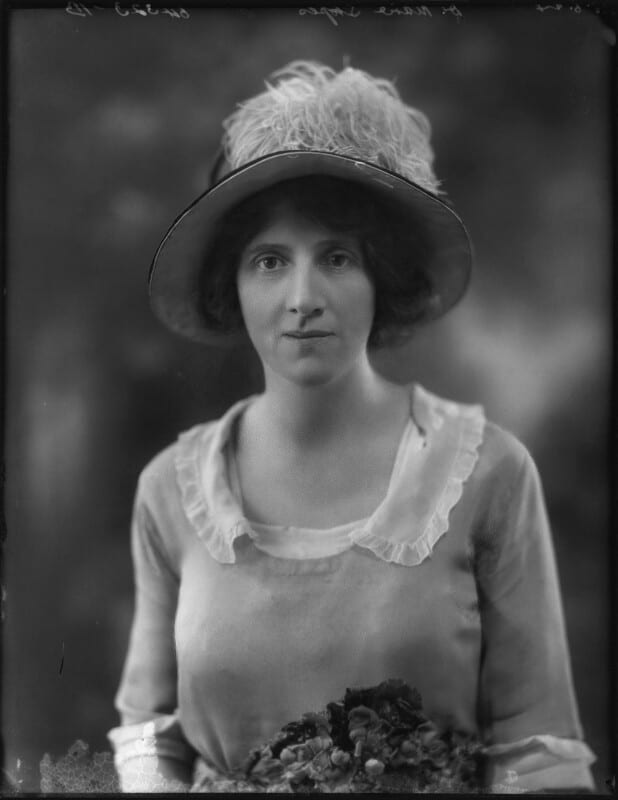
whole-plate glass negative, 26 June 1924
NPG x127854
© National Portrait Gallery, London
Marie Stopes (1880-1958) is most well known for being an advocate of birth control and sexual education, being fundamental in the beginning of the movement in Britain. It was only the last 20 years of her life that she spent at Norbury Park House near Dorking, moving there in 1838.
By this point in her life she had achieved many things, but she continued to publish poetry and books on sexual education and parenthood whilst living in Dorking. The most prominent of her writings was her sex manual Married Love, published in 1918. This book described marriage life as she believed it should be, and included a controversial chapter on contraception, being one of the first books to discuss such in a way accessible to the wider public.
Stopes married her second husband, Humphrey Verdon Roe, in 1918 and together they founded the first birth control clinic in London in 1921. It was open to all married women and there she developed many different types of contraceptives that these women could use. She later opened up clinics around the rest of Britain.
Other than her contribution to the growth of sexual education throughout the twentieth century, Stopes was also influential in the sphere of plant palaeontology and coal classification. Between 1904 and 1910 she was a lecturer in palaeobotany at the University of Manchester, where she was the first female academic on the faculty.
Stopes also had strong ideas regarding eugenics, being a strong advocate for the movement, and it was potential a factor feeding into her passion for providing birth control for the poor. In 1918 and 1920 she went so far as to advocate compulsory sterilisation of those considered unfit for parenthood. She campaigned these views to those in parliament and even the Prime Minister at the time, David Lloyd George. These beliefs she held until her death, when she left her clinics to the Eugenics Society.
Stopes died from breast cancer at the age of 77, in 1958 at Norbury Park, and left the estate to the Royal Society of Literature.

